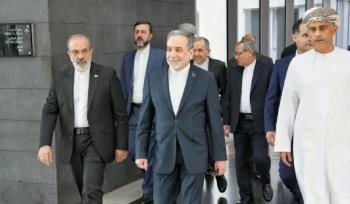Alwaght- Few days after successful Sochi meeting among Iranian, Russian, and Turkish presidents on boosting cooperation in Syria, saving the crisis-hit nation’s territorial integrity, and pushing for the withdrawal of the US as an uninvited force, the Syrian Democratic Forces (SDF), mainly comprised of the Kurdish People’s Protection Units (YPG), have issued a statement yesterday announcing their readiness to negotiate with the central government and Turkey on the terms of a proposed safe zone under the international community’s supervision.
Reacting to the Kurdish political and military leaders’ decision to talk to Damascus, General Paul LaCamera, the commander of the US-led Western coalition in Syria threatened that if the SDF push forward with the plan to ally with Syria or Russia, the US will cut off all of its military aids to the militant force.
The fact is that over the past month, following Trump announcement of plan to pull out of Syria and intensification of the Turkish military activities in Syria’s north, the Kurds, who are seen as the major card for the US role playing in the Syrian crisis, began to raise doubts and concerns about the continuation of the US shield for them against the Turkish hostility. In more exact words, the Kurds deemed the US decision as a betrayal of their trust and turning back to its past promises of helping Kurdish efforts to set up an autonomous region in northern Syria.
However, the Kurds' proposal to Damascus and Ankara pushed Americans to make ensuring remarks to the SDF leaders. James Jeffrey, the US envoy to the Western coalition in Syria, at the Munich Security Conference assured the US allies in Syria that the retreat from Syria will be gradual and “step-by-step” rather than abrupt and quick.
Despite the mixed US assurances and threats with the aim of keeping the Kurds away from entering dialogue with Washington’s rivals and reaching a deal with the central government, the Kurds have many reasons to make such a strategic decision which will guarantee their territories’ security and their role in the country’s future political scene.
First matter the Kurds are facing in the new Syrian and regional conditions is the US determination to cut its military commitments to its allies across the world, including those in West Asia. The Kurdish leaders wonder if after the inescapable US withdrawal, the trivial Washington military supports can protect them against the constant threats posed by their northern neighbor Turkey. The answer is absolutely no. As long as Turkey views the northern Syrian regions hazardous to its national security, the shadow of the Turkish military invasion will remain on the Kurdish regions.
The second reason for the Kurds’ readiness to talk to Damascus is linked to the nature of their armament. When the crisis broke out in 2011, the central government and Kurds reached an initial agreement in August 2012 to hand over the security of the northern regions to the Kurdish voluntary forces. Then, when the war upgraded to a new level with the rise of ISIS terrorist organization and the Kurdish-majority areas including Hasakah, Raqqa, and Kobani went under direct threat, the autonomously-run regions felt a big need for further equipment, including the semi-heavy weaponry to face the increasing challenges.
The US sensed a need to play a direct role in the Syrian conflict at the end of the Barack Obama presidency. The fight against ISIS created a mutual need for the US and the Kurds to set up an alliance where the Syrian Kurds did the mission of an infantry force for the US in exchange for arms. This empowering deal brought forth a side effect with itself: Increased Turkish concerns about the alliance which drove the President Recep Tayyip Erdogan to launch two direct military operations in 2016 in Afrin and 2018 in Eastern Euphrates, both targeting the Kurdish foothold there.
But now the ISIS threat to the Kurdish-held areas is gone as the terrorist group is on its last breath. Additionally, the war in the country is winding down and the nation is transferring to a calm and reconstruction phase. This situation ultimately leads to a need to disarm all rebels to stabilize the central administration. This outlook gives the Kurds every reason to go for negotiations with the government of President Bashar al-Assad to discuss the security in their regions and the future of their armed fighters.
On the other hand, publishing the statement only days after the Sochi summit signals the elimination of Turkey’s anti-Kurdish threats once they decide to deal with Damascus. So, it appears that the growing cooperation of the Kurds with the central authorities will bring to naught the American threats to cut the military aids to the Kurdish forces.



























